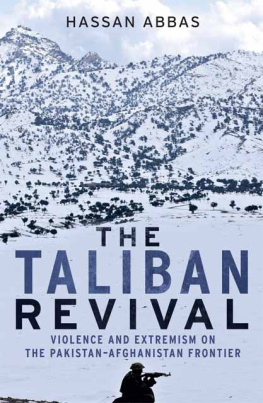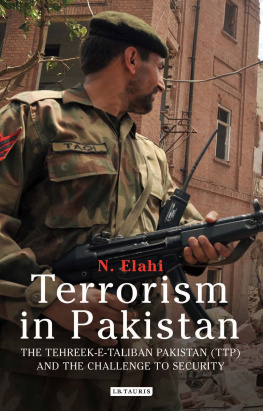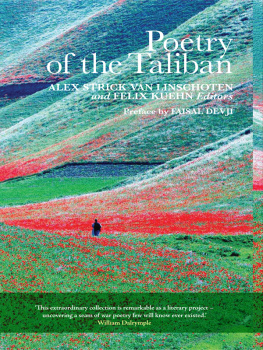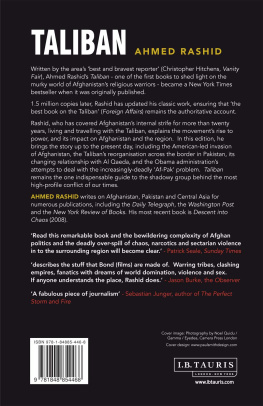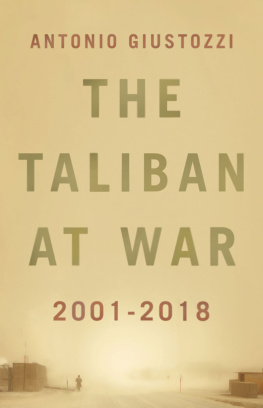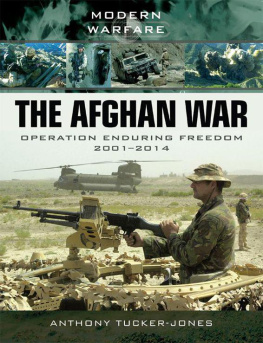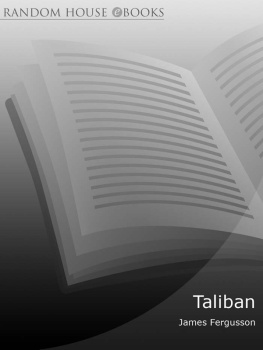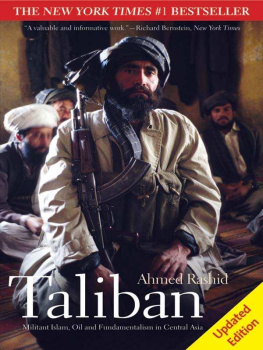

Copyright 2014 Hassan Abbas
All rights reserved. This book may not be reproduced in whole or in part, in any form (beyond that copying permitted by Sections 107 and 108 of the U.S. Copyright Law and except by reviewers for the public press) without written permission from the publishers.
For information about this and other Yale University Press publications, please contact:
U.S. Office:
Europe Office:
Set in Minion Pro by IDSUK (DataConnection) Ltd
Printed in Great Britain by Gomer Press Ltd, Llandysul, Ceredigion, Wales
Library of Congress Cataloging-in-Publication Data
Abbas, Hassan, 1969
The Taliban revival : violence and extremism on the Pakistan-Afghanistan frontier / Hassan Abbas.
pages cm
Includes bibliographical references and index.
ISBN 978-0-300-17884-5 (hardback : alkaline paper)
1. PakistanPolitics and government1988 2. AfghanistanPolitics and government2001 3. Taliban. 4. PushtunsPolitics and government. 5. BorderlandsPakistan. 6. BorderlandsAfghanistan. 7. Political violencePakistan. 8. Political violenceAfghanistan. 9. Islamic fundamentalismPakistan. 10. Islamic fundamentalismAfghanistan. I. Title.
DS389.A225 2014
954.911053dc23
2014002669
ISBN 978-0-300-17884-5
A catalogue record for this book is available from the British Library.
10 9 8 7 6 5 4 3 2 1
Sow flowers to make a garden bloom around you,
The thorns you sow will prick your own feet.
Humanity is all one body;
To torture another is simply to wound yourself.
Rahman Baba (16531715), the popular Pashtun Sufi poet buried in the city of Peshawar, Pakistan
Injustice anywhere is a threat to justice everywhere.
We are caught in an inescapable network of mutuality, tied in a single garment of destiny.
Whatever affects one directly, affects all indirectly.
Martin Luther King (192968)
Contents
Pashtun identity, culture and political history
Tribes and troubles on Pakistan's unruly Pashtun frontier (19472001)
The Afghan Jihad and the chaotic rise of the Taliban (19792001)
The gift of democracy for a new Afghanistan (200205)
The role of sanctuaries in Pakistan's FATA (200205)
Red Mosque vigilantes, protesting lawyers and Musharraf versus Bhutto (200708)
The loss of the Swat Valley and the rise of the Pakistani Taliban (200613)
Opium, crime and development funds (200613)
Impact of local politics, regional rivalries and drone strikes
Hubris and lack of vision versus hope and prospects for reform
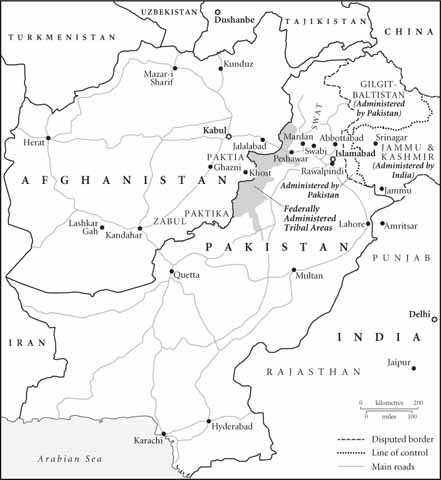
Afghanistan and Pakistan
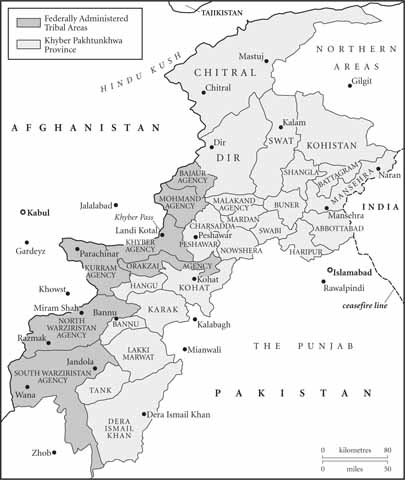
Former North West Frontier Province (now Khyber Pakhtunkhwa Province) and Federally Administered Tribal Areas, Pakistan
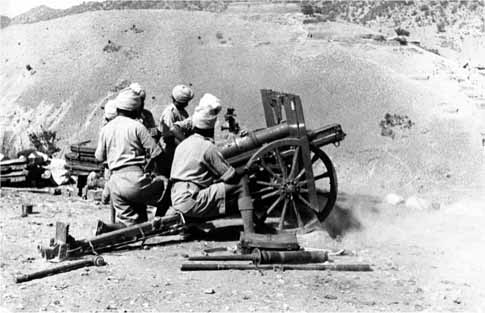
1 Operations by British and Indian troops against the hostile Mahsud and other tribes on the Waziristan section of the Indian North West Frontier, 1937.

2 A hero of the anti-Soviet Afghan Jihad years, and persona non grata of today, Gulbuddin Hekmatyar remains hopeful about his future role.
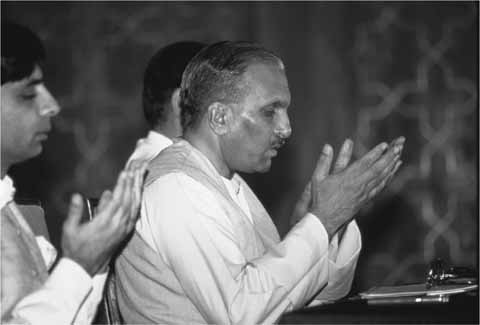
3 Zia ul Haq, the man who redefined Pakistan, pushing the country away from the vision of Jinnah that was built around democracy, tolerance and pluralism. Behind him stands Chaudry Nisar Ali, interior minister under Prime Minister Nawaz Sharif since 2013. Zia's legacy continues
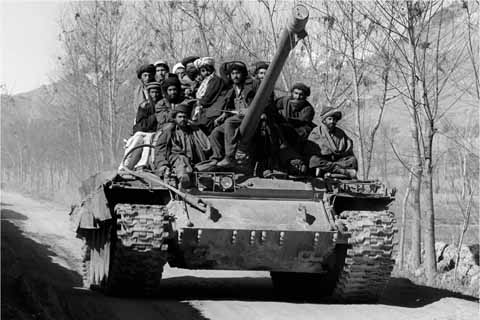
4 Rising from the ashes of the Mujahideen, once they were in the saddle the Taliban never looked back.
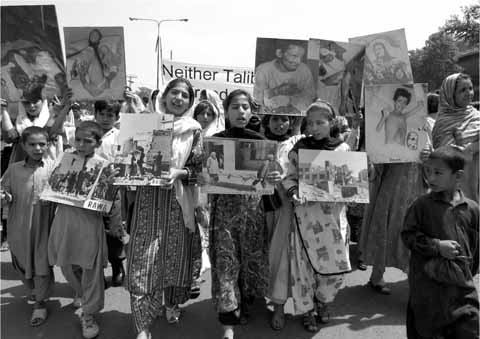
5 Taliban atrocities during their 19962001 reign were publicly condemned, such as at this rally in 2000 where members of the Revolutionary Association of the Women of Afghanistan protested against them and all other fighting forces. Such voices, however, fell on deaf ears in Islamabad.
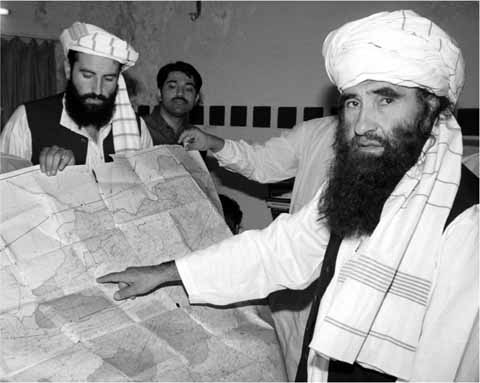
6 Jalaluddin Haqqani (right), leader of the Haqqani network, is Pakistan's asset in tackling Indian influence in Afghanistan if need be.
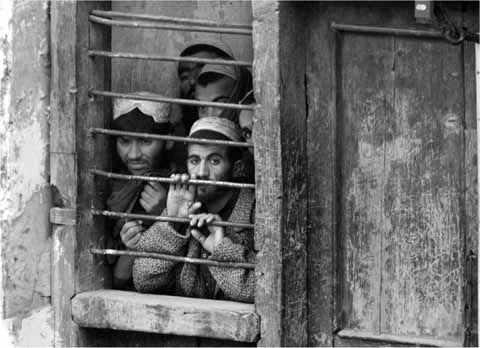
7 The hapless and clueless Taliban foot soldiers were ditched by their leaders and Al-Qaeda in the wake of the US military campaign in late 2001.
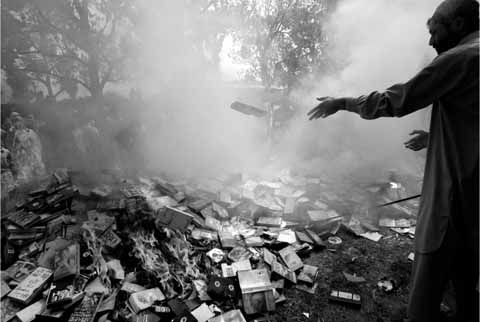
8 CDs and DVDs are consigned to the flames by a student of the Lal Masjid (Red Mosque) during an anti-vice rally in 2007. The rise of Lal Masjid vigilantes in the capital city Islamabad, and the devastating consequences, still haunts Pakistan.
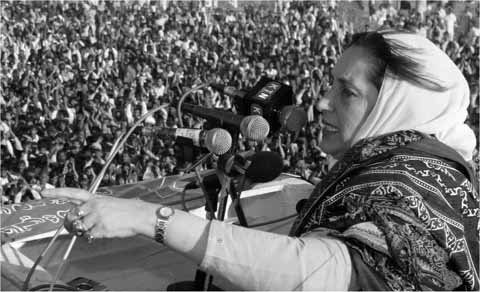
9 Benazir Bhutto, one of the most courageous Muslim leaders of modern times. She embraced death so that democracy could have a second chance in Pakistan.
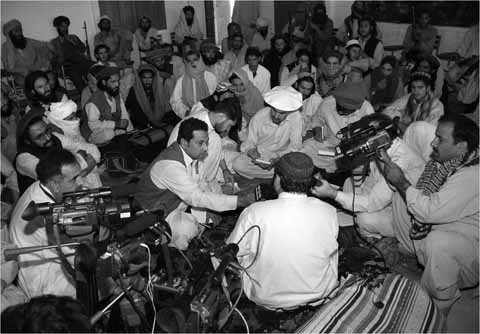
10 Militant leader Baitullah Mehsud speaks to journalists from his South Waziristan stronghold, 2008. The media-savvy Pakistani Taliban are masters in the art of deception and propaganda.

11 The destruction of girls schools such as this one in the Swat Valley, reduced to rubble in 2009 is a favourite pastime of Taliban across the PakistanAfghanistan frontier.
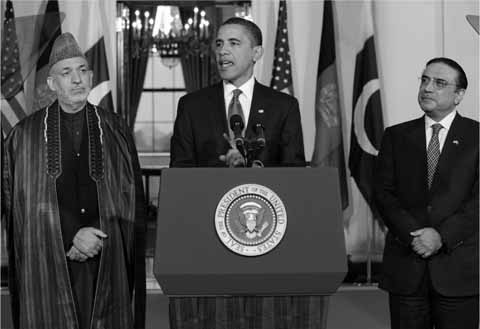
12 Presidents Barack Obama, Hamid Karzai and Asif Ali Zardari, in 2009. Whether the umpteen trilateral heads of state meetings over the years actually helped build mutual trust between Kabul, Islamabad and Washington, DC, is doubtful.
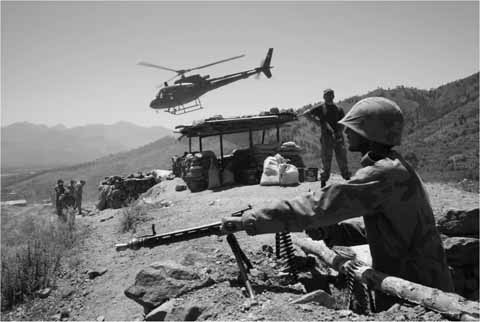
Next page
